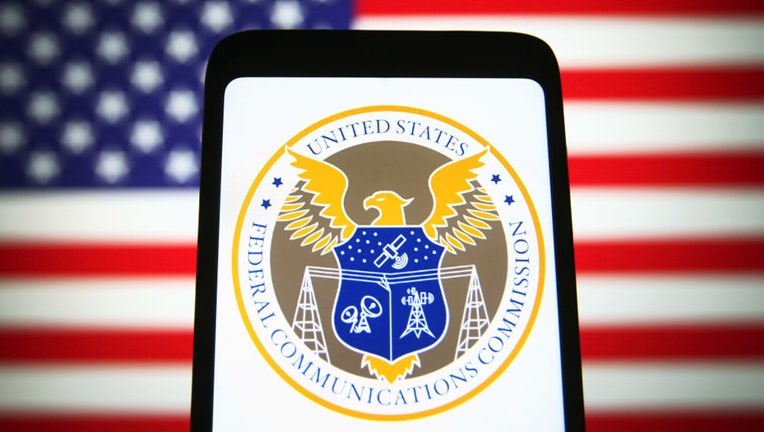Net neutrality: FCC reinstates internet regulations; what does that mean?

FILE - In this photo illustration, U.S. Federal Communications Commission (FCC) seal is seen on a smartphone screen with the US flag in the background. (Pavlo Gonchar/SOPA Images/LightRocket via Getty Images)
The Federal Communications Commission voted to reinstate net neutrality regulations for the internet on Thursday.
These rules will once again allow the agency to regulate broadband internet access as a telecommunications service and would return the FCC’s framework for regulating the internet to what the Obama administration put in place in 2015.
The measure passed on a 3-2 vote split by party lines, with Democratic commissioners in favor and Republicans opposed.
What is net neutrality?
Network neutrality, more commonly referred to as net neutrality, is the principle that internet service providers should treat all data equally, no matter where it comes from, who its audience is and what kind of information it is sharing.
Government regulations could, for instance, ban practices that throttle or block certain sites or apps, or that offer higher speeds to customers willing to pay extra.
"In our post-pandemic world, we know that broadband is a necessity, not a luxury," FCC Chairwoman Jessica Rosenworcel said in a statement ahead of Thursday’s vote.
Net neutrality back-and-forth
Net neutrality rules were first imposed during the Obama administration in 2015 but were repealed in 2017 after the Trump administration flipped control of the FCC, which returned broadband internet to being regulated as an information service.
With the Biden administration having returned the FCC to a majority of Democratic appointees, the agency is once again reinstating net neutrality rules that allow broadband to be regulated under Title II of the Communications Act.
The Comcasts and AT&Ts of the world opposed the reintroduction of the rules, as they have before, declaring it an example of unnecessary government interference in business decisions.
What's more, while it’s been almost seven years since the FCC killed the previous net neutrality rules, their reinstatement isn’t expected to noticeably change users’ online experience.
Public Knowledge legal director John Bergmayer credits that to several states having passed their own net neutrality measures prior to 2015, all of which remained in force when the FCC reversed course two years later following former President Donald Trump’s election.
"Some of the absolute worst excesses from (internet providers) were kept in check by state level oversight," Bergmayer said.
States like California went even further than the FCC did — for instance, by banning a practice called "zero rating." That’s where, for instance, a mobile provider might strike a business deal to steer users toward a particular streaming service by zeroing out any related data charges. Other states with strong net neutrality rules include Colorado, Maine, Oregon, Vermont and Washington, according to Bergmayer.
The Associated Press and FOX Business contributed to this report. This story was reported from Los Angeles.

